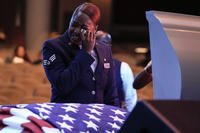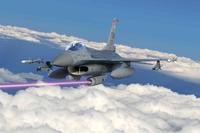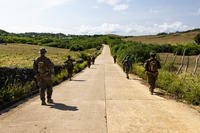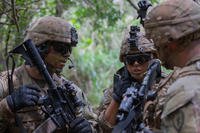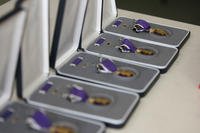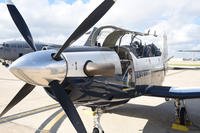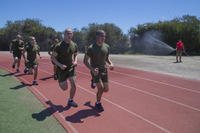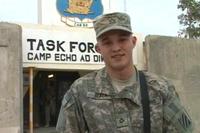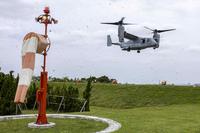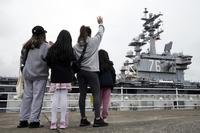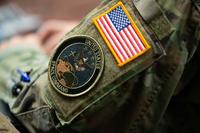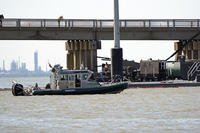After a two-month voyage, the crew aboard Coast Guard Cutter Juniper is far away from home; they’re 2,300 miles northeast of homeport… at the top of the world.
Juniper – a 225-foot buoy tender homeported in Newport, R.I. – is in the Arctic participating in Operation Nanook 2012. The operation aims to enhance the Coast Guard’s relationships, interoperability and experience with international forces working in the Arctic.
While patrolling the Arctic Ocean, Juniper’s crew has a continuous, sometimes spontaneous workload. Around-the-clock bridge and engine-room watches and ship upkeep make time illusive, stringing together night and day.
The constant activity keeps Juniper’s four cooks – called food service specialists – particularly busy. Feeding the 50 people aboard is an on-going cycle of planning, preparation, cooking, serving and cleaning. The work begins each day at 5 a.m. and does not stop until 2 a.m. the following morning. The galley, or the ship’s kitchen, is quiet for only three hours a day.
“By the end of this trip we will have made and served more than 3,300 meals and about 100 desserts. We will have prepared approximately 16,500 pounds of food,” said Petty Officer 1st Class Scott Lyons, the food service officer, who has three third class petty officers and a mess cook, who is the dish washer, working for him in the galley.
Every breakfast, lunch, dinner and midnight meal – called midrats, short for midnight rations served for shipmates on the night watch - means the crew is a little closer to the next mission, port call and ultimately seeing their families back home.
“I know that so many people look forward to mealtime, I love to cook because our meals contribute to the crew’s morale,” said Petty Officer 3rd Class Chrissie Benzor, one of the crew cooks.
“This team is the single largest contributor to daily morale aboard. They take pride in their work and the crew here genuinely looks forward to the next meal,” said Lt. Frank Morrison, Juniper’s executive officer.
Because mealtime is so important to the crew, the cooks’ efforts are under constant critique. Fifty sets of taste buds and appetites offer compliment and complaint.
“The most challenging part of our job is trying to please so many different palates, especially since we are serving people from so many different places and backgrounds,” said Lyons.
Lyons said another big challenge during their deployment is keeping the food well stocked and coordinating deliveries. Two deep freezers hold most of the meat and bread needed for the trip, but produce and dairy need to be replenished.
“Our schedule is never set in stone; right now we are arranging to have food flown in and delivered by the crew of a Canadian Coast Guard ship, but I am not sure where or when yet,” said Lyons. “We have other considerations too; any produce we get from a country other than the United States or Canada has to be completely gone before the end of our trip. We can’t take produce from another country back home with us.”
Lyons is responsible for most of the food ordering, scheduling and paperwork, but he relies heavily on his three petty officers to prepare, cook and serve the food to the crew.
Benzor, and the two other cooks, Mike Edwards and Hunter Robinson, both third class petty officers, are always eager to try new recipes and accept helpful critique from the crew. All three crewmembers are constantly trying to learn and get better at what they do, striving for excellence. Benzor and Robinson both graduated from food service specialist advanced training this past June and look to Edwards, who has been aboard Juniper for more than a year, for guidance and leadership.
Edwards is the ship’s “Jack of the Dust,” which means in addition to cooking he has the added responsibility of helping Lyons with office paperwork and organization. He also recently attended and excelled in a five-week advanced culinary skills training course, a class normally attended by higher-ranking Coast Guard food service specialists.
“Edwards is so helpful; he is always there to try our food and give us ideas to make it better, but he walks us through it and teaches us step-by-step,” said Benzor.
Even at the end of each workday underway, when crewmembers not on watch are discussing movies and card games or working out in the gym, the cooks are in the galley cleaning up after dinner and prepping food for the following day.
Morrison said the remarkable thing about their overall products is simply that they refuse to take shortcuts; whenever possible the items served are as close to homemade as possible, and frozen items are used sparingly or don’t make the cut at all.
Robinson said despite the long hours and hard work, the four team members work well together, making their difficult job more enjoyable.
“We help each other out if we see someone is getting too worn out. Lyons and Edwards are both fun supervisors with great attitudes, they keep us going,” Robinson said.
Juniper’s four cooks show dedication that shows through their meals, and their all-day work ethic and positive attitudes are contagious aboard the ship. Each day underway for Operation Nanook 2012 begins in the ship’s galley with breakfast, setting the tone for the day ahead and leading the way for the crew.


